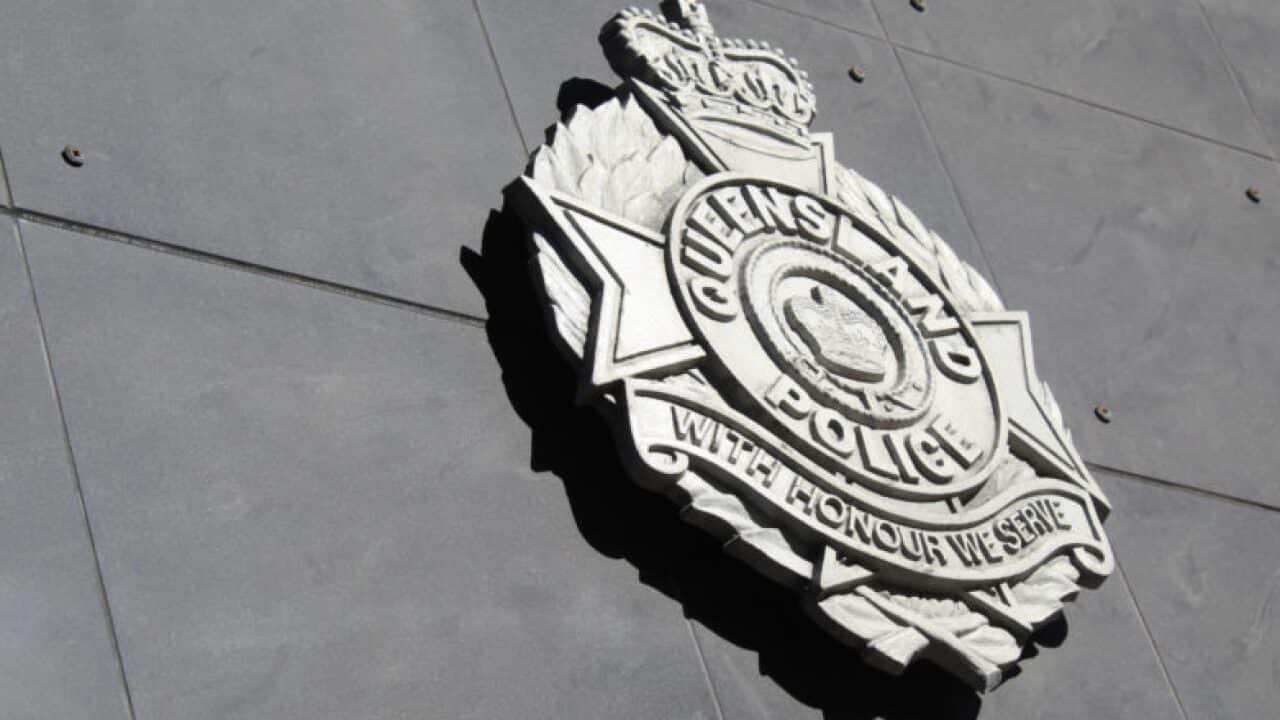Constable Zachary Rolfe has refused to answer a coroner’s questions about the night he shot and killed a Warlpiri teenager in the Northern Territory community of Yuendemu.
Constable Rolfe’s appearance at the coronial inquest marked the first time he’s been in court since he was cleared of murder and two alternative charges — after he fired three shots into Kumanjayi Walker, when he and other Alice Springs police travelled to Yuendemu to arrest him in 2019.
Constable Rolfe was not talking to the media as he made his long-awaited appearance.
He was called to give evidence on Wednesday at the Alice Springs inquest but invoked the penalty privilege when counsel assisting Peggy Dwyer questioned him about a .
In it, Constable Rolfe refers to Aboriginal Australians as "c**ns".
"I wish to exercise my right and claim the penalty privilege on the basis my answers might tend to expose me to penalty," he said.
Constable Rolfe also claimed privilege over other after he killed Mr Walker.
He confirmed he would also invoke privilege over evidence related to his alleged misuse of police body-worn cameras and excessive force on the job.

Yuendumu's Police Station. Credit: NITV
Before he claimed privilege to protect himself, Constable Rolfe told the inquest about his time as a student at grammar school in Canberra and his military service with the Australian Defence Force.
He refused to answer questions relating to 14 key points being examined by the Coroner.
Among the points, he would not address were all matters relating to the failed arrest and fatal shooting of Kumanjayi Walker on November 9, 2019.
He was also unwilling to discuss 9 use of force incidents he was involved in, including this brutal arrest in the centre of Alice Springs in October 2019 – almost a month before the Yuendemu shooting.
The Coroner heard police disciplinary action over Constable Rolfe's use of force in arresting mainly Aboriginal people has been finalised.
He was provided remedial advice by senior officers and a perjury charge relating to evidence he gave in court about his arrest of Malcolm Ryder has been dropped.
Constable Rolfe’s appearance follows a two-day tour of the Yuendemu community by the coroner.
Elders travelled into Alice Springs hoping for answers, they’ll now have to wait for the outcome of a supreme court challenge.
He also answered questions about the cultural training he had received when he joined the NT police in 2016, saying: "We were taught to respect everyone".
Constable Rolfe shot Mr Walker in the back and torso during a scuffle in a darkened room as the Warlpiri man resisted being handcuffed.
'How come he is still in a job?'
The 19-year-old's community expressed outrage on Tuesday over Rolfe appearing as a witness at the inquest.
"It is so disgusting, so disgusting," elder Ned Jampijinpa Hargraves told reporters.
"We as a community are thinking, how come he is still in a job? How come he's still in the NT?" he said.

Senior Warlpiri Elder Ned Jampijinpa Hargraves has expressed his communities concerns. Source: AAP
The inquest has heard Constable Rolfe regularly used racist terms, such as c**n and n***** to describe Aboriginal people, and had been accused of excessive use of force in the months before he killed Mr Walker.
He also told his former fiancee he wanted to kill people and bragged in a text message about injuring a man during an arrest outside an Alice Springs pub.
The 31-year-old was banned from applying to join the Queensland Police Force for a decade for failing to disclose violent behaviour on his job application.
He also failed to disclose that he had pleaded guilty to stealing while he was a soldier in the Australian Defence Force in 2012 when he applied to the NT Police Force.
NT police psychological testing revealed that Rolfe had above-normal aggression levels and was less likely to accept responsibility for mistakes than other people.
The coroner has also been given evidence about medication prescribed to Constable Rolfe that may have impacted on his decision-making.
Psychiatrist Alexander McFarlane's evidence is that the drug was "likely to have impacted on his capacity for behavioural inhibition to threat".
The inquest continues.
- Additional reporting by AAP



